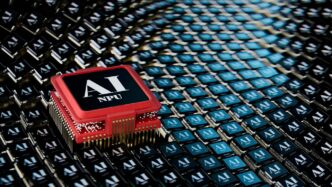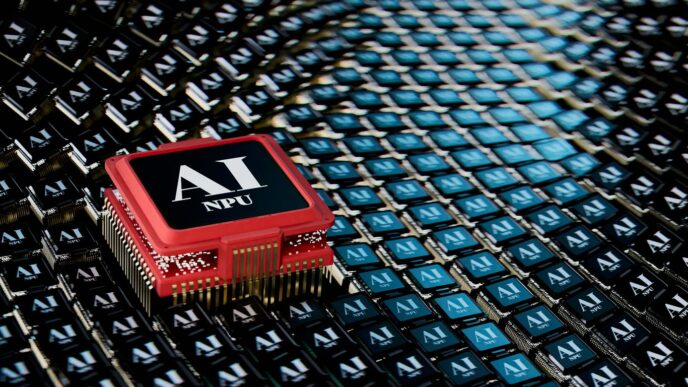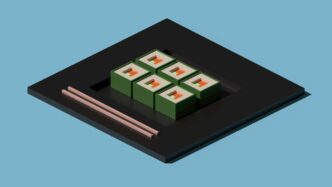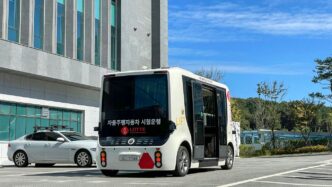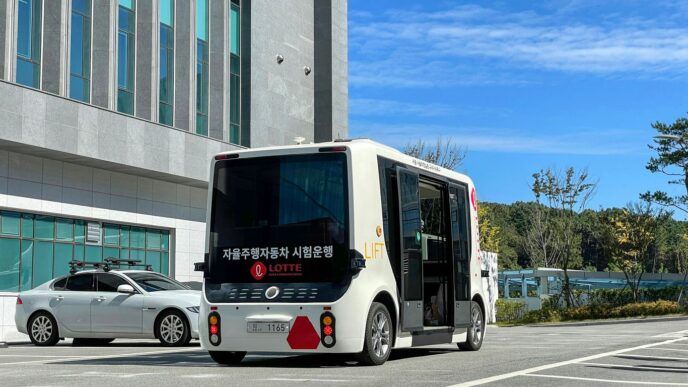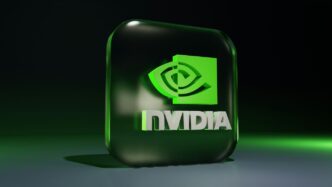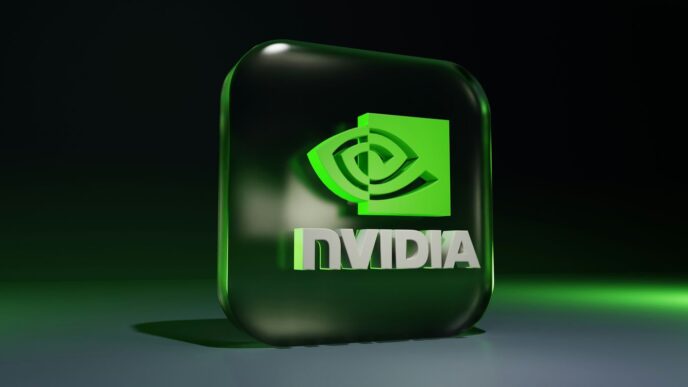SuperQ’s Hybrid Approach to Quantum Computing
So, quantum computing. It sounds like something out of a sci-fi movie, right? But it’s becoming real, and SuperQ is tackling it in a pretty smart way. Instead of trying to ditch all our current tech, they’re mixing the old with the new. Think of it like using your smartphone alongside a super-powerful calculator – you use each for what it’s best at.
Integrating Classical and Quantum Technologies
This is where the magic happens. Quantum computers are amazing for certain kinds of problems, like figuring out really complex molecular structures or breaking tough codes. But they’re not great at everything. That’s where regular computers, the ones we use every day, come in. SuperQ’s system figures out what kind of problem you have and then decides the best way to solve it. Sometimes that means using a quantum processor, sometimes it means using a powerful regular computer (like those NVIDIA GPUs everyone’s talking about), and often it means using a combination of both. This hybrid approach means we can get answers faster and more efficiently, without needing a whole room full of specialized quantum gear just to get started.
- Problem Identification: The system first figures out the core of your challenge.
- Strategy Selection: It then picks the best tool for the job – quantum, classical, or a mix.
- Solution Execution: Finally, it runs the computation using the chosen hardware.
The Super™ Platform: Intuitive Access to Quantum Power
Okay, so how do you actually use this stuff? That’s where the Super™ platform comes in. The idea is to make super-advanced computing accessible, even if you’re not a quantum physicist. You can describe your problem, and the platform handles the complicated bits behind the scenes. It’s designed to be pretty straightforward, letting people who aren’t deep in the weeds of quantum mechanics still get real results. This platform is key to making quantum computing useful for actual businesses and researchers, not just a lab experiment.
Leveraging AI for Optimal Computational Strategies
How does the Super™ platform know which approach is best? That’s where Artificial Intelligence (AI) steps in. AI acts like a smart assistant, analyzing the problem and guiding the system to the most effective computational path. It helps decide when to use quantum bits (qubits) and when to stick with traditional bits. This AI component is what makes the hybrid approach so effective. It’s not just about having the hardware; it’s about intelligently orchestrating it to solve problems that were previously too difficult or time-consuming to tackle.
| Computational Task | Typical Tool | Quantum Advantage | AI Role |
|---|---|---|---|
| Complex Simulations | Supercomputers | High | Optimization & Strategy |
| Optimization Problems | Classical Algorithms | Moderate | Strategy & Analysis |
| Cryptography | Specialized Hardware | Very High | Problem Decomposition |
| Data Analysis | GPUs | Moderate | Pre-processing & Pattern Recognition |
Democratizing Quantum Computing with Super Hubs
Think about how complicated it used to be to get your hands on quantum computing power. You’d need a whole lab, tons of money, and a PhD just to get started. That’s where the idea of Super Hubs comes in – making this amazing tech available to way more people.
The Lethbridge Quantum Super Hub Model
The Lethbridge Quantum Super Hub is a prime example of this. It’s not just about having fancy quantum machines; it’s about making them useful. They’ve set up a system where you can explain your problem, and the hub figures out the best way to solve it. This might mean using quantum computers, regular supercomputers, or even AI, all working together. It’s like having a super-smart assistant that picks the right tool for the job.
- Problem Description: Users explain their challenges in simple terms.
- Intelligent Routing: The hub’s system determines the most efficient computational approach (quantum, classical, or hybrid).
- Resource Allocation: It then uses the best available hardware, including GPUs and quantum processors.
- Support System: Local businesses get help from start to finish, from figuring out problems to training.
This approach means you don’t need to be a quantum physicist to benefit. It’s about practical problem-solving for everyone, from students to local businesses.
Global Expansion of Quantum Super Hubs
Lethbridge is just the beginning. The plan is to take this Super Hub model and set up similar facilities all over the world. Imagine having these powerful computing resources available in your own city or region. The next stop is planned for the United Arab Emirates, showing a real push to spread this technology far and wide. The goal is to make quantum computing accessible, not just a tool for a select few. This global rollout aims to speed up innovation everywhere.
Empowering Local Innovators Worldwide
By creating these community-focused hubs, SuperQ is giving local talent a real chance to shine. Researchers, students, and businesses can now access cutting-edge tools without having to move across the country or spend a fortune. Workshops and training programs are part of the deal, helping people get up to speed. This isn’t just about providing access; it’s about building local capabilities and allowing people to tackle big problems right where they are. It’s a way to bring the future of computing to your doorstep.
Transforming Industries with SuperQ
SuperQ isn’t just about building fancy quantum computers; it’s about making them useful for real-world problems. We’re seeing how this technology can shake things up across different sectors, and it’s pretty exciting.
Applications in Precision Agriculture and Logistics
Think about farming. We can use quantum computing to get way more precise. Imagine optimizing fertilizer use based on super-detailed soil and weather data, or predicting crop yields with incredible accuracy. This means less waste and more food. For logistics, it’s a game-changer too. We’re talking about figuring out the absolute best routes for delivery trucks, considering traffic, weather, and delivery windows in real-time. This isn’t just about saving a few minutes; it’s about cutting down fuel costs and making sure goods get where they need to be, when they need to be there.
- Optimizing crop yields through advanced environmental modeling.
- Reducing waste in agriculture by precisely managing resources.
- Streamlining supply chains with dynamic route planning.
- Improving delivery efficiency and lowering transportation costs.
Optimizing Manufacturing and Energy Use
In manufacturing, the possibilities are huge. We can simulate complex chemical reactions to develop new materials or improve existing ones. This could lead to stronger, lighter, or more sustainable products. Plus, quantum computing can help optimize entire factory operations. Think about scheduling machines and workers to minimize downtime and maximize output. And when it comes to energy, we can use this tech to manage power grids more effectively, predict demand with greater accuracy, and even help in the discovery of new energy sources or more efficient storage methods. This kind of optimization can lead to significant cost savings and a smaller environmental footprint.
Revolutionizing Finance and Risk Modeling
The financial world is all about numbers and predicting the future, which is exactly where quantum computing shines. We can build much more sophisticated models for financial forecasting. This means better investment strategies and a clearer picture of market trends. Risk management gets a serious upgrade too. Imagine being able to simulate thousands of potential market scenarios to understand and prepare for risks that we can’t even see coming with current tools. It’s about making financial systems more stable and resilient.
SuperQ’s Commitment to Talent and Innovation
Building something as complex as a quantum computer isn’t just about fancy hardware and clever algorithms. It really takes a lot of smart people working together. At SuperQ, we know that our future depends on bringing in the brightest minds and giving them the space to create. We’re not just looking for folks who know quantum mechanics inside and out; we need people who can bridge the gap between theory and real-world use.
Recruiting Next-Generation Quantum Talent
We’re actively looking for the next wave of quantum thinkers and builders. This means reaching out to students and researchers who are excited about tackling practical problems. Think about working on systems that combine classical and quantum computing, or even helping to design the quantum hardware itself. We want people who are eager to make a difference in areas like AI, logistics, healthcare, and making industries run better. We’ve been showing up at places like the Waterloo NanoQuantum Conference to connect with these future leaders. We’re looking for talent in a few key areas:
- Quantum Hardware Engineers: People who can work with superconducting devices, measurement systems, and control mechanisms.
- HPC and Systems Engineers: Those who understand GPUs, accelerators, and how to manage complex hybrid workloads.
- AI and Optimization Engineers: Experts in mathematical optimization, AI, and building hybrid workflows.
Hardware-Software Co-Design for Scaled Deployments
It’s not enough to just build a quantum chip. You have to think about how it talks to the software and how it all fits together for practical use. That’s why we focus on hardware-software co-design. Our Super™ platform is a big part of this. It’s designed to make advanced computing accessible, and that means making sure the hardware and software work hand-in-hand from the start. This approach helps us move faster and build systems that can actually be used at scale, not just in a lab.
Advancing Quantum Hardware and AI Integration
We’re constantly pushing the boundaries of what’s possible. This includes filing patents to protect our unique approaches, like combining classical and quantum computing for complex problem-solving. We’re also looking at how to integrate quantum sensing with classical sensors and AI. Our goal is to create systems that can handle both computation and sensing in a unified way, delivering real-time, precise results. This kind of integrated approach is what will allow us to tackle the biggest challenges across various industries.
The Future of Quantum Computing with SuperQ
So, what’s next for quantum computing, and where does SuperQ fit into all of this? It’s a big question, but the path forward seems pretty clear from where I’m sitting. We’re not just talking about theoretical possibilities anymore; we’re seeing real-world applications start to pop up, and SuperQ is right there, trying to make it happen.
The Role of SuperQ in the Quantum Revolution
Think of SuperQ as a bridge. On one side, you have this incredibly powerful, but really complex, quantum technology. On the other side, you have businesses and researchers who need solutions to tough problems. SuperQ’s Super™ platform is designed to be that bridge, making quantum computing accessible. It’s like having a super-smart assistant that can handle the really hard math for you. The goal is to let people use quantum power without needing to become quantum physicists themselves. This means more people can actually use these tools to solve problems in areas like medicine, finance, and even climate science. It’s about bringing quantum out of the lab and into everyday use.
Intellectual Property and Long-Term Value Creation
Building new technology is one thing, but protecting it and making sure it lasts is another. SuperQ is focused on creating unique intellectual property, especially around how our Super™ platform integrates classical and quantum systems. This isn’t just about having patents; it’s about building a sustainable business. By developing proprietary AI tools and unique approaches to hybrid computing, SuperQ aims to create lasting value. This means that the solutions we help build today will continue to be useful and adaptable as quantum technology evolves. It’s about building something that doesn’t just work now, but will keep working and improving for years to come.
Positioning as a Trusted Leader in Quantum Solutions
Ultimately, SuperQ wants to be known as the go-to company for practical quantum solutions. This means being reliable, transparent, and consistently delivering results. We’re working on building trust through partnerships, like the one with NVIDIA, and by showing how our technology can provide real benefits. The Super Hubs are a big part of this, creating physical spaces where people can learn and work with quantum technology. By focusing on practical applications and making the technology easy to use, SuperQ is aiming to become a leader that organizations can count on for their most challenging computational needs. It’s about being the dependable guide in this new quantum world.
SuperQ’s Strategic Partnerships and Validation
It’s always good to see when a company’s ideas line up with what the big players are doing. SuperQ has been making some interesting moves, and it looks like others are noticing. For instance, NVIDIA recently launched something called NVQLink. This is basically their way of bringing together classical supercomputing and quantum computing right at the hardware level. SuperQ has actually been doing something similar, but on the software side, with their Super™ platform. It’s kind of neat when these different approaches start to look alike, don’t you think?
NVIDIA’s CEO, Jensen Huang, even talked a lot about this hybrid classical-quantum computing idea in his keynote. It shows that the industry is really starting to think about how these two types of computing need to work together. SuperQ’s CEO, Dr. Muhammad Khan, even organized a meetup at the GTC DC conference called "Quantum, AI and High-performance Computing: Intersection Opportunities." He mentioned that to really get useful results from quantum computers, you have to combine them with classical computing, like the kind you get from GPUs. Classical supercomputing helps with things like controlling qubits, fixing errors, and cleaning up noise. Quantum computing, on the other hand, is best used as a specific tool within larger algorithms to tackle really tough problems. The Super™ platform is designed to make this whole process easier, even using natural language.
Alignment with NVIDIA’s Hybrid Quantum Approach
This alignment with NVIDIA’s direction is a big deal. It validates SuperQ’s focus on a hybrid model. They’re not just building quantum computers in isolation; they’re figuring out how to make them work with the powerful classical systems we already have. This is important because, as Dr. Khan pointed out, quantum computers alone aren’t the whole answer. They need the support of classical systems for many tasks. SuperQ’s Super™ platform aims to bridge this gap, making it simpler for businesses to use this combined power.
Validation Through Industry Events and Meetups
Speaking of events, SuperQ has been pretty active. They were a big part of the University of Waterloo’s Nanotechnology Conference. They didn’t just sponsor it; their COO and Head of Professional Services were actually the ones opening the event! This conference, which focused on "Quantum Meets Nano," brought together students, researchers, and industry folks. SuperQ also used the event to announce they were hiring for several positions in quantum software and hardware development. This shows they’re serious about growing their team and working with top talent, especially in places like the Waterloo quantum ecosystem, which is pretty well-known.
SuperQ also participated in an event at the University of Waterloo’s Institute for Quantum Computing called "Build Your Own Superconducting Quantum Device." This kind of hands-on involvement helps them push forward with their own hardware and sensing projects, working alongside other big names in semiconductors and quantum innovation.
Collaborations for Accelerated Development
Beyond just attending events, SuperQ is actively filing patents. They’ve submitted provisional patent applications in the U.S. for their hybrid quantum-supercomputing and hybrid quantum sensing inventions. These patents cover how they combine classical supercomputing, different types of quantum computing (like gate-based and annealing), AI, and even neuromorphic architectures into one system. They’re also working on integrating classical sensors with quantum-enhanced detectors and AI for real-time sensing. These patent filings are a significant step in protecting their unique approach and paving the way for future commercialization and licensing. The company plans to pursue full utility patents in the U.S., Canada, Europe, and Asia. This intellectual property is key to their strategy for expanding into new markets and forming partnerships. It’s all about building a strong foundation for long-term growth and staying ahead in the competitive quantum landscape.
The Quantum Future is Here, and It’s More Accessible Than You Think
So, what does all this mean? Basically, quantum computing isn’t some far-off science fiction idea anymore. Places like the Lethbridge Quantum Super Hub are making it real and, more importantly, usable for everyday businesses and researchers. By mixing quantum power with regular computers and AI, they’re solving tough problems that were just impossible before. Think better farming, smoother shipping, smarter factories, and more stable finances. This isn’t just about one city, either; the plan is to spread these hubs worldwide. It’s a big step towards making this powerful technology available to everyone, everywhere, and that’s pretty exciting for what comes next.



